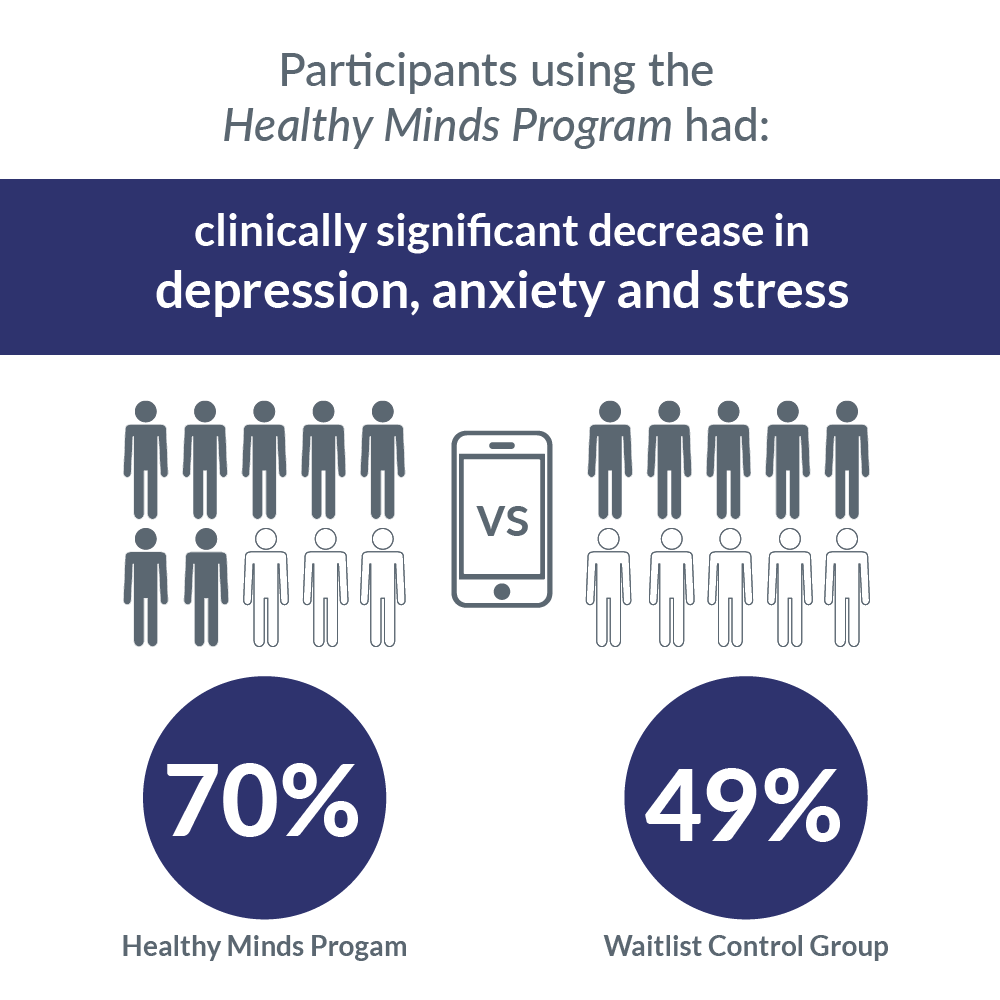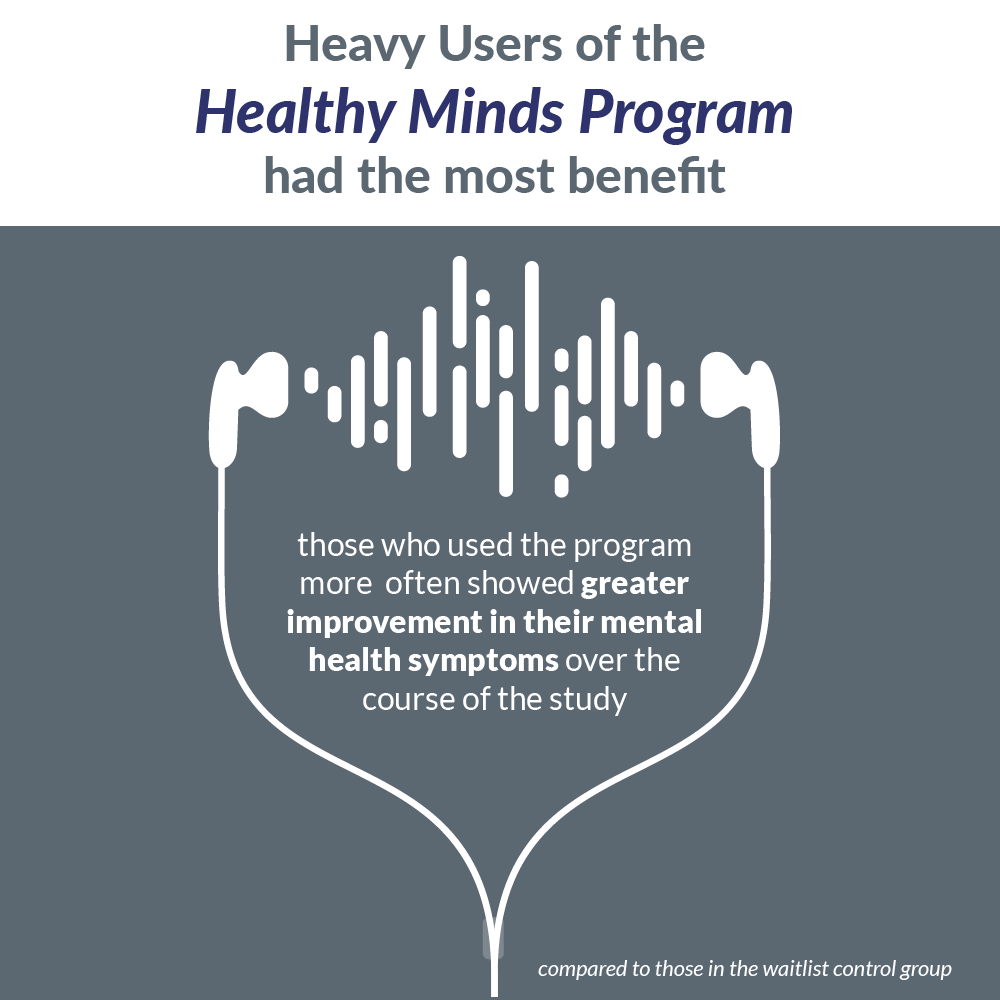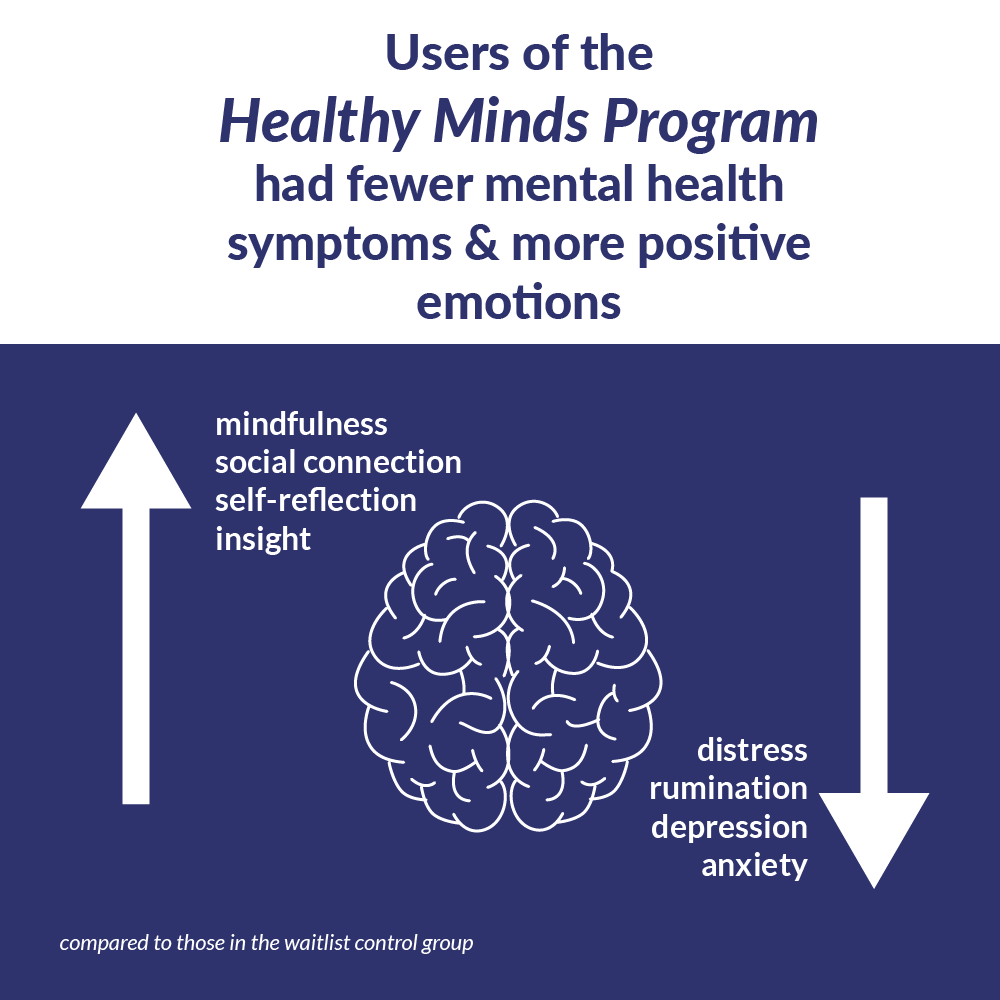The team found that when compared with those in the waitlist group, people in the two groups that used the program showed decreases in distress and rumination (or repeatedly focusing on negative thoughts), as well as greater increases in mindfulness, social connectedness, self-reflection, insight, and defusion (or acknowledging and distancing oneself from one’s negative thoughts) when compared to the group that did not take the program. More than 70 percent of those randomized to receive the Healthy Minds Program app reported a clinically significant decrease in depression, anxiety, and stress, while only 49 percent of those in the waitlist showed this improvement.

The team also noticed a dosage effect, with those who used the program more showing greater improvement on their mental health symptoms over the course of the study, which is on par with other research on mindfulness interventions. Although the results are very encouraging, the effects were smaller than those typically seen for in-person mindfulness-based interventions, suggesting there may be tradeoffs between scalability and efficacy.

Though the early results are promising, the authors think more targeted randomized controlled trials with the Healthy Minds Program are needed. For instance, though a small portion of participants engaged with content in the “connection” and “insight” modules, scientists expected the group that did the “connection” module to show larger improvements over time in social connection than the group that did the “insight” module, which wasn’t the case. Both groups showed an increase in social connection and a reduction in distress, which means that for people with little meditation experience, the “awareness” and “insight” modules, which do include some prosocial meditation practices, may have accounted for the increase in feelings of connection.













